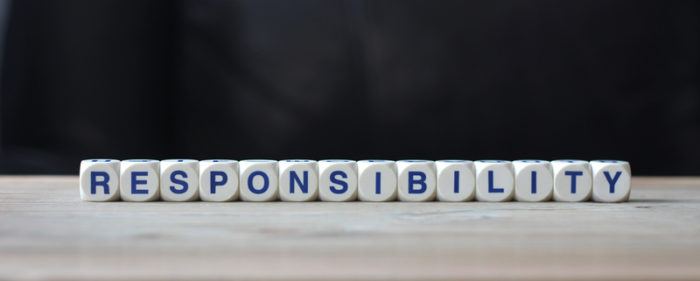
One way to overcome social divisiveness is to create a baseline platform of obligatory activities that everyone, with no exceptions, must participate in to be citizens of the United States. Other than obeying laws, the United States does not require citizens to do anything to warrant their citizenship. Obeying laws is mainly about what not to do, not about what to do. Unlike laws, citizen obligations are about what to do, about engaging in collective behaviors to help unify our culture. How can these obligations be structured into American society, and what exactly would the obligations entail?
As a means of permanently inserting these obligations into American society, I propose the following: an amendment to the Constitution called the Bill of Responsibilities.
The purpose of this Bill is to introduce collective citizen obligations to Americans, helping us to recognize that we are all in this democratic experiment together. An effect of this recognition comes from interacting with people of different backgrounds with views that differ from our own. The citizen obligations would require people to step outside of their normal In-group social boundaries on a regular basis. Since the Constitution explicitly identifies individual rights in the Bill of Rights, certain citizen responsibilities should be similarly identified. What citizen collective obligations would be important enough to put in the Constitution?
Mandatory Voting. Voting is the basic democratic citizen act. Americans have a terrible voting record compared to other democratic countries. Mandatory voting (enforced by minor sanctions) has not harmed the democratic process in other democracies, and it typically results in very high voter turnout. All citizens should equally share in the basic act of maintaining democracy, and mandatory voting in all elections is a means of assuring this maintenance.
Mandatory Participation in a Neighborhood Association. Most Americans live in neighborhoods. Since neighbors surround us, presumably Americans socialize regularly with their neighbors. In the past this may have occurred, but it does not occur on a regular basis now. Many neighborhoods have recognized associations, but most Americans do not participate in these associations. Mandatory participation, which should not require any sizable time or energy commitment, would have neighbors relating as something other than strangers. Interacting with neighbors to solve neighborhood issues would have a side benefit: an increased understanding of others’ viewpoints.
Universal Youth Draft. Sometime between the ages of 16 and 30, everyone, with no exceptions, would serve their country in some way. One could choose from a variety of options: The military, Peace Corps, Ameri-Corp, the Red Cross, hospitals, schools, clinics, prisons, social service agencies, or charitable organizations. Young people would be provided room and board and paid minimally during their two years of service. The purpose of this proposal is to one, create a sense of social commitment by instilling the recognition that we all equally have a debt to the society that nurtures us, and two, give young Americans the opportunity to get to know and understand those from different backgrounds.
Mandatory Community Service. All citizens, unless too ill or impaired, would at least minimally participate in some form of community service on a regular basis. The purpose of this proposal is similar to the one above. As we pursue our individual lives we forget how dependent our personal outcomes are on the collective context. The many Americans that already volunteer for community service could serve as role models if such a program was mandated for all.
Critics of this proposal point out that mandatory obligations reduce the very freedoms that we have worked to expand. They say that some of the proposals violate the freedom of assembly portion of the 1st Amendment. The obligations do restrict social freedoms (though not economic or political freedom) somewhat, forcing us to recognize that we are all equally part of a larger community. However, collective responsibilities that everyone participates in, regardless of one’s demographic profile, might increase real equality and inclusivity better than anything else we have tried. Equality because everyone equally participates in the obligations, and inclusivity because the interaction that results from participation makes us realize that our commonalities far outweigh our differences.
Photo 158365139 © Potongsaga | Dreamstime.com
















